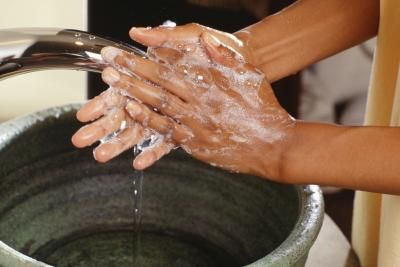Unilever announces new initiative in progress to helping 1 billion people improve their health and wellbeing
- Like
- Digg
- Del
- Tumblr
- VKontakte
- Buffer
- Love This
- Odnoklassniki
- Meneame
- Blogger
- Amazon
- Yahoo Mail
- Gmail
- AOL
- Newsvine
- HackerNews
- Evernote
- MySpace
- Mail.ru
- Viadeo
- Line
- Comments
- Yummly
- SMS
- Viber
- Telegram
- Subscribe
- Skype
- Facebook Messenger
- Kakao
- LiveJournal
- Yammer
- Edgar
- Fintel
- Mix
- Instapaper
- Copy Link
Posted: 15 October 2012 | Unilever | No comments yet
New initiative to bring handwashing with soap to the Millennium Villages…


Unilever and the Earth Institute today announced a new initiative to bring handwashing with soap – a lifesaving habit – to the Millennium Villages, a project that works with nearly 500,000 people in rural villages, across 10 countries in sub-Saharan Africa. Prof. Jeffrey Sachs, Director of the Earth Institute at Columbia University and Paul Polman, CEO Unilever, signed the Memorandum of Understanding (MOU) in New York today on the fifth anniversary of Global Handwashing Day.


Paul Polman, Unilever CEO said: ”The big issues the world is facing require new approaches, new business models and new partnerships. Responsible businesses must take a more active leadership role. The MOU with the Earth Institute partnering Lifebuoy with the Millennium Villages Project is one such example where working together will enhance our expertise of addressing hygiene in deep rural Africa and enable us to develop more effective solutions to reduce child mortality.”
“It is unacceptable that two million children die every year from infectious diseases when we have easy and cheap lifesaving solutions, such as handwashing with soap, readily available. Innovative partnerships between governments, civil society and business have a critical role to play in promoting better hygiene practices and in tackling the world’s deadliest diseases.”
The date for the MOU with the Millennium Villages Project – October 15th – has been chosen because it is the fifth anniversary of Global Handwashing Day – a day, celebrated in over 100 countries. Today Unilever is highlighting how handwashing with soap can help more children reach their fifth birthday.
Everybody can help a child – Pledge on Facebook
Millions around the world are asked to pledge on www.facebook.com/lifebuoy. With every pledge, Lifebuoy and its partners will help more children receive hygiene education through their dedicated handwashing behavior change programs.
Jeffrey Sachs, Director of the Earth Institute at Columbia University said: “Diarrhoea and pneumonia are the two leading causes of under-5 deaths, accounting for around 30% of children’s deaths globally – more than two million lives lost each year. More than 80% of these deaths occur in sub-Saharan Africa and South Asia. Addressing these challenges through improved hygiene is a vital and effective step towards saving lives and achieving the global Millennium Development Goal to reduce the child mortality rate by two-thirds by 2015.”
Consistent evidence shows that handwashing with soap at critical times – before eating or preparing food and after using the toilet – can reduce diarrhoeal risk by 45% and acute respiratory infections such as pneumonia, by 23%. Studies also reveal that primary school absenteeism due to diarrhoea and respiratory infections dropped between 20% and 50% as a result of better handwashing practices.
“We are looking forward to working with Unilever to ensure that straightforward solutions like handwashing reach the people that need them the most,” said Sachs who leads the Millennium Villages Project. The poor need solutions that are affordable, products that are highly effective, and information that is practical and accessible. The benefits can be enormous.”
The partnership will be focusing on villages in Ethiopia, Ghana, Kenya, Malawi, Mali, Nigeria, Rwanda, Senegal, Tanzania and Uganda, and aims to: decrease incidence in diarrhoeal diseases, promote gender equality, increase school attendance, enhance productivity and well-being for all community members. The partnership will also focus on governments. Governments should integrate handwashing with soap into national health and education policy frameworks. Governments and aid donors should ensure adequate finance for hygiene facilities and water availabilities. Business must act too, ensuring their products are even more affordable, and varied so that handwashing with soap is done everywhere and by all. Public-private partnerships have role to play and can help governments harness the power of business for the benefit of their population’s health.
Looking to the UN’s post-2015 agenda, Polman said, “It will be important to ensure that hygiene takes its place alongside targets on water and sanitation. This partnership with Millennium Villages Project will provide further evidence to demonstrate to policymakers how hygiene public policy can be improved, and help bring to an end the scandal of children dying from preventable diseases.”




